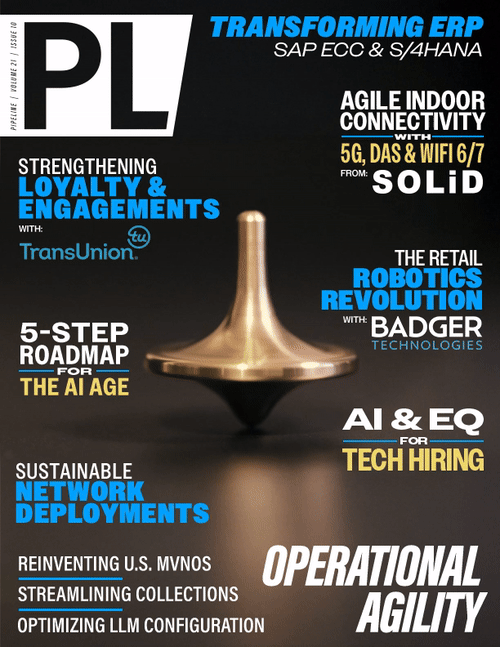AI and EQ: The New Advantage
in Tech Talent Evaluation
By: Napoleon Rumteen

Have you ever onboarded an engineer who aced every technical assessment, impressed everyone during interviews, and seemed destined for success but quickly fell short? Within weeks, friction sets in. Teams grow frustrated, clients feel misunderstood, and productivity slows to a crawl. It's not as rare a scenario, yet it's a recurring, costly inefficiency many tech companies face.
This has led to the golden age of emotional intelligence (EQ), where soft skills are the greatest asset companies should pursue, and their measure is objective and attainable. With collaboration spanning continents and hybrid teams becoming the norm, EQ is no longer a "nice to have." It's a stern necessity. Technical know-how remains a necessary baseline, but emotional savvy determines who will succeed, who will perish, and who can transform a business. Innovation isn't driven by lines of code alone but more and more by people who know how to communicate, empathize, and adapt under pressure.
Emotional Intelligence, the Proven Rubric for Success
While EQ might seem like a modern buzzword, its foundational importance isn't new. Research by the Carnegie Foundation in 1918 and reported by the National Soft Skills Association showed that 85 percent of an employee's success depends on soft skills, with technical skills accounting for only 15%. This enduring insight underscores the fundamental role EQ plays in the workplace. Over a century later, tech leaders are rediscovering this truth in real-time.
Contemporary research reveals significant implications for organizations. Forbes reports that 89 percent of hiring misfires result from a poor employee attitude. Meanwhile, the Academy to Innovate HR reports that 73 percent of employees left jobs due to a cultural mismatch. These data points show that EQ and cultural alignment are essential.
In a post-pandemic, hybrid-first job market, EQ matters more than ever. With less in-person connection, the ability to read people's emotions via email, video, or internal communication platforms like Slack has become a mission-critical skill. Understanding unspoken cues, responding thoughtfully in text, and de-escalating misunderstandings (or avoiding starting them) from a distance all require a heightened connection to emotional intelligence.
For technology executives, these insights can be leveraged into business advantages. Teams rich in emotional intelligence demonstrate superior problem-solving capabilities, enhanced innovation, and greater resilience to market pressures. In an industry where speed, agility, and innovation are critical, EQ-rich teams don't just ship better products; they build stronger companies.
AI-Powered Talent Evaluation
Given the clear benefits of EQ-driven teams, the central challenge for executives is accurately assessing these elusive soft skills. Traditional assessments, from personality tests to subjective interview processes, often introduce unintended biases or fail to provide actionable insights. However, the explosion of accessible AI technologies has transformed talent evaluation methodologies.
So, what does EQ evaluation powered by AI look like?
Imagine a candidate immersed in an interactive, branching video scenario. In it, a teammate is dropping the ball, a client escalates an issue, and a client threatens to end their contract. The candidate must respond, not by clicking a multiple-choice answer but by reacting just as they would in real-time. The platform captures their verbal responses, and AI scores them against EQ traits, including empathy, adaptability, situational awareness, collaborative aptitude, and conflict resolution.
This isn't a personality test or a resume screen. It's a simulation of real-world dynamics—a sort of test drive—powered by intelligent systems that help hiring teams move beyond gut instinct to data-backed insights.
Critically, this approach also reduces bias. Because AI is applied consistently to all candidates and focuses on how they respond in context, it supports DEI goals while improving the quality of the hiring experience and the hire. It's an emerging technology that is solving a deeply human challenge at scale.
Real-World Outcomes From EQ-Focused Hiring
Organizations that have incorporated EQ-driven assessments report transformative outcomes. Common benefits include reduced turnover rates, accelerated onboarding times, and improved team dynamics. Companies also observe enhanced cultural alignment and improved satisfaction scores.
Investing in emotional intelligence assessments means fewer hiring missteps for tech executives, often leading to costly delays and stalled innovation. In high-pressure tech environments, achieving such outcomes can elevate competitive advantages and leave competitors who don't account for EQ far behind.
Companies already leveraging emotional intelligence data are seeing measurable retention, cohesion, and culture gains. I've witnessed a case where a business reduced mis-hires by 35 percent and cut onboarding time in half after adopting EQ-



















